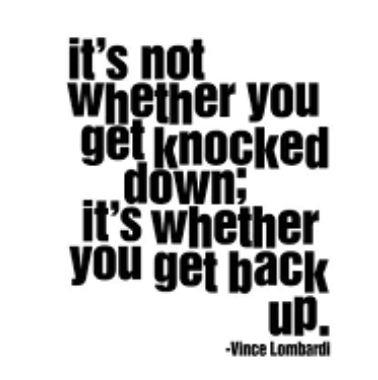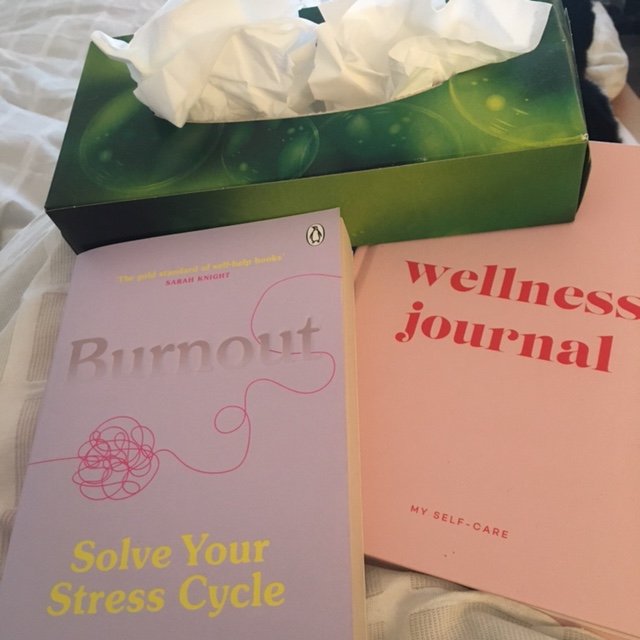What do you really want in 2022? 🎄
The end of this year hasn't been what I expected.
We had a recent loss in our extended family which has left me feeling sad of course, but also reflective and asking some big questions.
Usually this is the time of year which, as a business owner, you start setting big goals for the year ahead.
How much do you want to earn? How many clients do you need each month? What will your marketing strategy be?
And yet I don't feel motivated by any of these things right now.
Of course these things are still important because running a business does take planning and preparation, but I'm much more preoccupied by what my WHOLE life will look like next year. How can I make the most of my time? Who will I spend it with? How can I support my body and mind to stay healthy and happy?
It's funny that these are the questions my clients have been asking themselves too. They also want to figure out how to maintain a balance and not let work crowd out their personal lives. And also how to set clear boundaries with family, friends and colleagues so that they can carve out more time for themselves and do the things they enjoy.
We've all been through a lot during the past couple of years, and possibly have come through it asking more questions about what we really want from our lives and careers.
If that sounds like you, here are a little exercise called 'Stop, Start, Continue' to help you figure out your 2022 plans:
Think back to 12 months ago…
What were you doing? What was happening in your life? Where were you working? Where were you living? How were you feeling? What were your hopes and plans for the next 12 months?
Now consider what hasn’t gone so well in your life and career? What will you stop doing?
What do you want to start doing for yourself and your career during the next 12 months? What have you been putting off?
And lastly, what has gone well in your life and career during that time? What are you proud of, and what will you continue doing in the future?
Hope you find this helpful. I'd love to hear how you got on.
Have a wonderful, restful Christmas and New Year and I'll see you on the other side.
Juliette xx
Positive thinking your way to success
Do you know anyone who is “happy go lucky”? Always sees the silver lining in any situation? Seems like a born optimist?
Well it turns out that being an optimist or a pessimist isn’t just down to our genes, but is in fact a learned behaviour. Optimism or pessimism can become ingrained into our thought processes over a period of time.
For example at work, we’re often rewarded for spotting and solving problems, or managing stressful situations. These are really valuable skills, but if we are constantly watching out for problems, then we can become blinded to the things which could actually make us happy or bring us more success.
Basically, the more we focus on something, the more likely we are to notice is everywhere.
One famous experiment which demonstrates this was carried out by psychologists Daniel Simons and Christopher Chabris. Have a watch…
Did you spot the gorilla??? I certainly didn't the first time around! It just goes to show how easily we can become 'blinded' to obvious things unless we intentionally look for them.
So what can you do if you’re naturally a pessimist?
Well it is completely possible to ‘train your brain’ to overcome its own negativity bias (which we’re all hardwired to have), and tell it to ‘hunt for the good stuff’.
And there are plenty of benefits to this approach. Optimists tend to spot more opportunities and make the most of them. They also set more ambitious goals and put more effort into reaching those goals.
They are able to stay engaged with the process if things get tricky, and can bounce back quicker if it don’t go to plan. They can also cope better with periods of stress or change, such as a heavy workload or a restructure.
One popular 'brain training' tool for optimism is to start a gratitude journal, where you take time each day to notice and write down ‘3 good things’ from your day.
Or if you want to feel more optimistic about work, then one fun exercise is to team up with a friend and pretend that they want to apply for your job. Think of 3 appealing aspects of your role and give them a verbal job description highlighting those things.
I do this exercise in my workshops and participants often say that they get a long lasting ‘feel good’ factor after actively remembering the perks of their jobs.
Give it a try, I’d love to hear how you get on!
Resilience: Your 'secret weapon' in tough times
Man the workplace is a TOUGH place to be these days.
Back when I was still in my 9 to 5 in advertising, I remember only too clearly the constant pressure, shifting deadlines, and heavy workload that frequently pushed me beyond "mmm isn’t this exciting" stress, to "OMG I don’t know if I can cope" stress.
And I hear similar stories from my clients all the time, about how they are desperate to escape and find some balance, whether that’s in a new role or as their own boss.
Although entrepreneurship isn’t exactly a cakewalk either. You have to constantly step out of your comfort zone, and get used to living with uncertainty.
Which is why I was so glad to come across the topic of ‘Resilience’ during my studies in positive psychology. It’s a bit of a buzzword at the moment, and turns out to be the perfect antidote to modern day work and life stress.
So what exactly is resilience?
In nutshell, resilience is our capacity to cope with, be strengthened by, and recover from difficult times. You may think that resilience is something that we are either born with or we’re not, but that’s not the case at all. We can all develop a resilient mindset, if we are given the right knowledge and tools.
Resilience is something we do, rather than something we have.
Another advantage of becoming more resilient, is that it allows you to not only bounce back from tough times, but actually bounce forward into something even better.
This is especially important when it comes to handling failure. It could be that your proposal was rejected at work, or you were turned down for that promotion, or you lost a client, or didn’t get that grant you applied for. Or maybe you’re having a tough time in your personal life, and that is having a big impact on your work.
Any of these events can lead to to self-doubt, anxiety, burnout and depression. Which is why learning strategies to handle failure is so important, so that instead of spiralling downwards, we can learn from the experience, maintain a positive outlook, and move forward.
Here are three tips to get you started on the road to greater resilience:
1. Look for lessons learned. You’re in good company, as there are plenty of famous people who failed many times before they finally got it right. Think of Thomas Edison who made 1000 unsuccessful attempts before inventing the lightbulb. Hunt the good stuff. Ask yourself, "where can I improve here? What will I not repeat next time?".
2. Remember your strengths. This isn’t about being overconfident or arrogant. It’s about remembering what you ARE good at, rather than focusing on your perceived weaknesses. Lean on those strengths, and leverage them as often as possible, to get you through rough spots.
3. Gain strength from others. Make sure you have a great team around you, who believe in you. Whether it’s colleagues, mentors, friends or family, it’s crucial for your resilience that you have those people in your life who are there to catch you when you fall, and help you get back up again.
Everyone can become more resilient. It’s about choosing a more optimistic mindset, and learning to turn any setbacks in life to your advantage.
Speak to you soon,
Juliette xx
p.s Struggling with stress or burnout? Feeling lost, stuck or just unmotivated? Then book an introductory 45min coaching session with me for just £97, and get some support and accountability to help you figure out your next steps.













